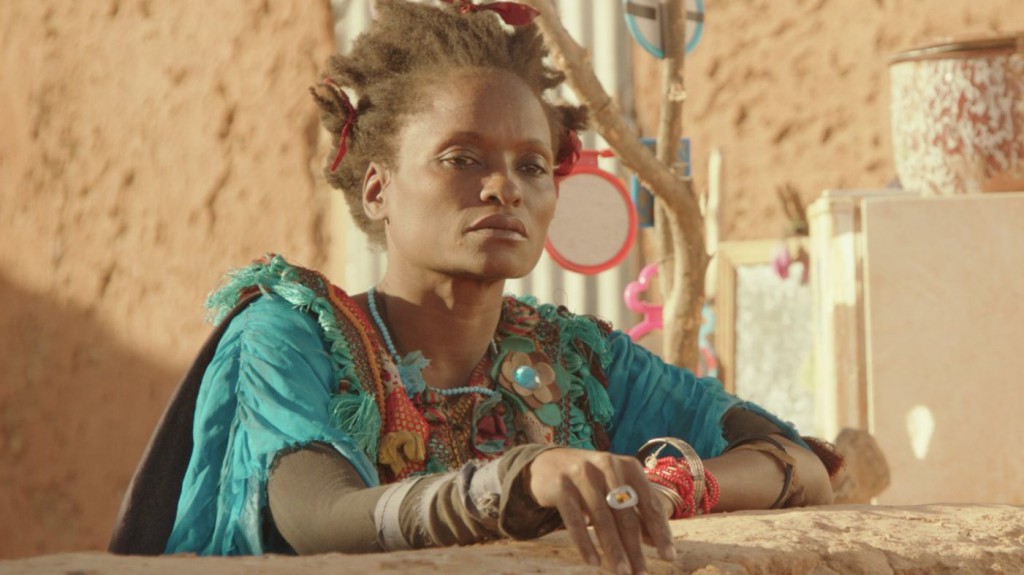Film Review: Timbuktu
Pan-African Jihadists descend on a peaceful village in the Malian capital, disrupting the lives of the hard-working inhabitants. African and Arab residents otherwise live side by side harmoniously, trying to eke out a living from the harsh landscape. The last thing they need are random, petty interdictions about clothes and conduct.
The Jihadists’ demands are at first silly before gradually becoming more sinister; women must wear gloves and socks and to show their hair is ‘indecent’; men must adjust the length of their trousers; football and music are banned; men and women are subjected to severe whippings for sitting together in the same room; a man is condemned to death for accidentally killing his neighbour. Some villagers are defiant. The local Imam tries to reason with the intruders from a religious standpoint. Those who can, escape. Those left behind attempt to hold on to a semblance of normality; an ever-more impossible task as the Jihadists suffocating rules encroach on every aspect of life.
Meanwhile these new, self-appointed ‘guardians’ of the village are themselves torn between a joyless and unmerciful piety and their old ‘forbidden’ life.
From the powerful opening scene in which the extremists use indigenous crafts and artefacts as target practice till the urgent yet ambiguous final frame, Mauritanian auteur Abderrahmane Sissako’s topical, Oscar-nominated feature ‘Timbuktu’ continuously captivates. This is a film of stark contrasts. As with all tragedies, the absurd and the austere are uneasy bedfellows. Beautiful people live in picturesque surroundings yet their lives are marred by an ugly situation. There’s something paradoxical too about the mundanity and terror of the violent intrusion. These militant traditionalist are au fait with and fond of the ‘infidel’s latest technology, smart phones hidden away in the swathes of their long robes.
This is a work of understated brilliance thanks to its gorgeous cinematography, the documentary-style realism of the performances and a subtly intelligent screenplay. Making a veiled reference to when Al-Qaeda piggy-backed the decades’ long Tuareg liberation struggle in Northern Mali a few years ago, Sissako is bold enough to take Islamic extremism head-on. He does so in a manner that might make his more PC-conscious western counterparts feel uncomfortable. ‘Timbuktu’ does not completely dehumanise the Jihadists or turn them into caricatures. It’s sympathetic in its portrayal of the restless, impressionable young men who are particularly susceptible to the dogma; hungry for a greater purpose. Nonetheless the film is unapologetic in its criticism of Islamic fundamentalism and the devastation it wreaks on ordinary citizens.
‘Timbuktu’ out now on DVD and Blu-Ray.



